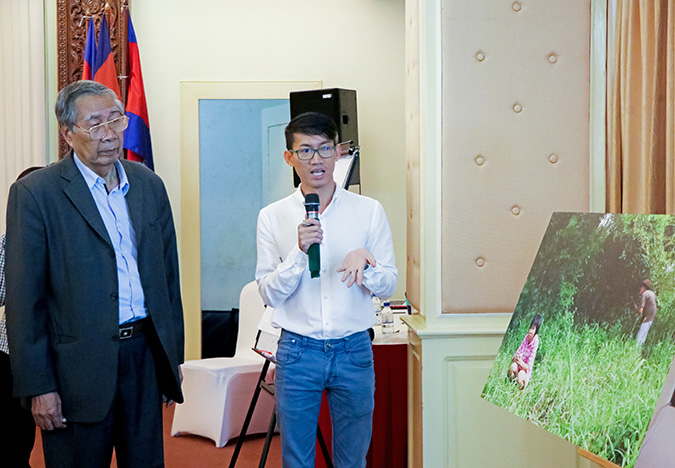LGBTIQ people continue advocating for their rights in Cambodia
Date:
Author: Sreynich Leng
Phnom Penh, Cambodia — Cambodia’s lesbian, gay, bisexual, transgender, intersex and queer (LGBTIQ) people are continuing to urge the Government to make laws and policies to give them equal rights.The effort continued with a public policy dialogue between policymakers and more than 70 LGBTIQ activists, civil society groups and United Nations agencies. The dialogue took place at a hotel in Phnom Penh on 31 May, during Pride Week.

Sarah Knibbs, UN Women’s Acting Country Representative said she hoped that the dialogue would become a platform for LGBTIQ persons to share their suggestions on resolving their problems as well as contribute to the Universal Periodic Review that policymakers will do next year and to the Government’s long-term commitment to “leave no one behind.” United Nations Member States do the Reviews to declare what actions they have taken to improve their human rights situations.
“It’s such a great collective initiative that today dialogue on public policy to promote LGBTIQ rights is organized and conducted by a group of civil society organizations,” Knibbs said. “This joint action demonstrates recognition that different expertise and fields of knowledge can bring strength to our work with LGBTIQ people.”
At the dialogue, LGBTIQ people gave presentations on their experiences and the challenges they faced, including with regard to acceptance by family and society, employment, the legal framework on adopting children, marriage certificates, Identification cards and family record books.
One of the presenters was Rom Sombo, a 30-year-old transman from Siem Reap province in the northwest.
“The dialogue today is very good because it provides me the right, opportunity and time to tell and share my own stories to policymakers and authorities, and I do hope they help us find solutions to these problems and give more support,” Sombo said. “Though it does not fully achieve our main goal yet, it’s useful for us because it’s coming from their mouths that they will consider drafting the marriage law.”
Nhean Sochetra, General Director of Social Development of the Ministry of Women’s Affairs, encouraged the LGBTIQ people not to lose hope because, she said, the situation will get better. She praised them for knowing who they are.
“At the Ministry of Women’s Affairs, we also inserted one chapter about LGBTIQ in our five-year strategic plan, Neary Rattanak, and though we have been working on gender equality for some time, LGBTIQ issues are still quite new to me,” Sochetra said. “I think the main cause of the problem begins at home due to the lack of information and acknowledgement on LGBTIQ. Therefore, we need more research and studies on LGBTIQ issues.”
The civil society organizations that participated in the dialogue included Rainbow Community Kampuchea, Reproductive Health Association of Cambodia, Micro Rainbow International, Cambodian Center for Human Rights, Destination Justice, and KHANA Cambodia. The United Nations agencies were UN Women, United Nations Human Rights Office, and UN Volunteers programme. The policymakers came from the Ministry of Information, Ministry of Women's Affairs, Ministry of Labor and Vocational Training, Ministry of Justice, and General Department of Identification of the Ministry of Interior.